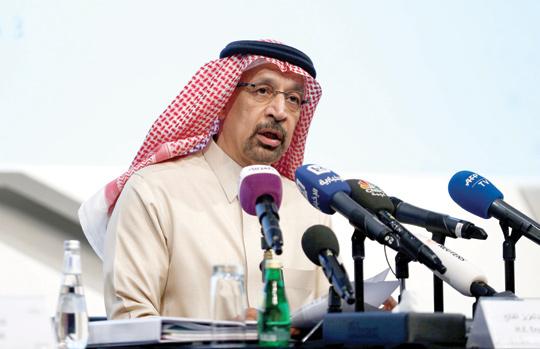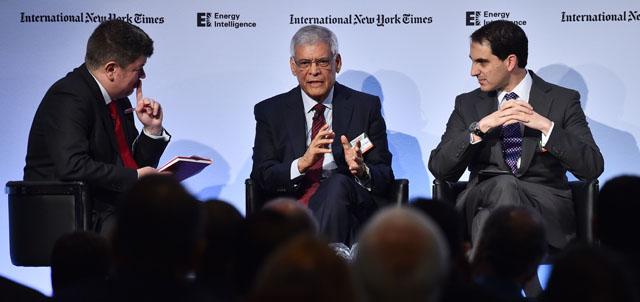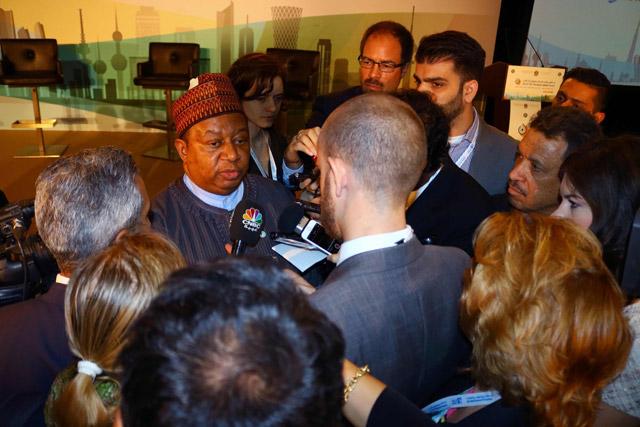You are here
Saudi energy minister 'very optimistic' about oil market
By AFP - Jan 15,2019 - Last updated at Jan 15,2019

Saudi Energy Minister Khalid Al Falih speaks during a news conference in Riyadh, Saudi Arabia, on January 9 (Reuters file photo)
ABU DHABI — Saudi Energy Minister Khalid Al Falih said on Tuesday he was "very optimistic" about the outlook for the oil market after producers cut output to support flagging prices.
Members of the Organisation of Petroleum Exporting Countries (OPEC) cartel and allies including Russia decided last month to reduce output by 1.2 million barrels per day (bpd) after prices fell by more than 40 per cent in just a few weeks in late 2018.
The price of benchmark Brent crude, which briefly dipped below $50 a barrel in November, rebounded partially to above $60 a barrel following the production cuts which took effect on January 1.
The market has remained volatile with prices fluctuating sharply even after OPEC kingpin Saudi Arabia announced last week it will gradually cut output by 800,000bpd in January and a further 100,000bpd next month.
"I am confident that the impact of the decision we took to cut output by 1.2 million bpd... will be very strong," Falih told reporters on the sidelines of the Abu Dhabi Sustainability Week conference.
"But there is always a lagtime between the [decision to] cut production and the impact reaching the market," he said.
Falih said he is confident that "within the next few weeks" the market conditions will return to normal and confidence will be restored.
"I am very optimistic," Falih said.
The Saudi minister also downplayed the impact of an expected global economic slowdown on the oil market.
"I am not ruling out a cyclical recession. I think we all know that these things are a fact of life," especially after a long expansionary period, Falih said.
"I just don't see it as a major shock to the global economy. Certainly, I don't see a big spillover into the oil market," he said.
Oil prices crashed in mid-2014 to below $30 a barrel, down from over $100 a barrel, because of a glut in supplies and weakening world demand.
That prompted the OPEC to cooperate with non-OPEC producers, mainly Russia, to trim output by 1.8 million bpd from the start of 2017.
After they abandoned the production cuts policy in mid-2018, oil prices dropped again.
But Falih said that the so-called OPEC+ group, which pumps 52 million bpd or 52 per cent of global output, is capable of rebalancing the market which has a surplus of around 300,000 to 400,000bpd.
"An adjustment by a half per cent does not appear to me to be a challenge," Falih said.
Related Articles
DUBAI/ DOHA — Iranian Oil Minister Bijan Zanganeh expressed optimism on Saturday about an upcoming Organisation of Petroleum Exporting Count
Oil production by members of the Organisation of Petroleum Exporting Countries (OPEC) is unlikely to change much in 2015 and there is no need to panic at the crude price drop, OPEC's secretary general said on Wednesday, adding to indications the exporter group is in no hurry to cut output.
ABU DHABI — The Organisation of the Petroleum Exporting Countries (OPEC) is confident that production cuts agreed with non-members to prop u















